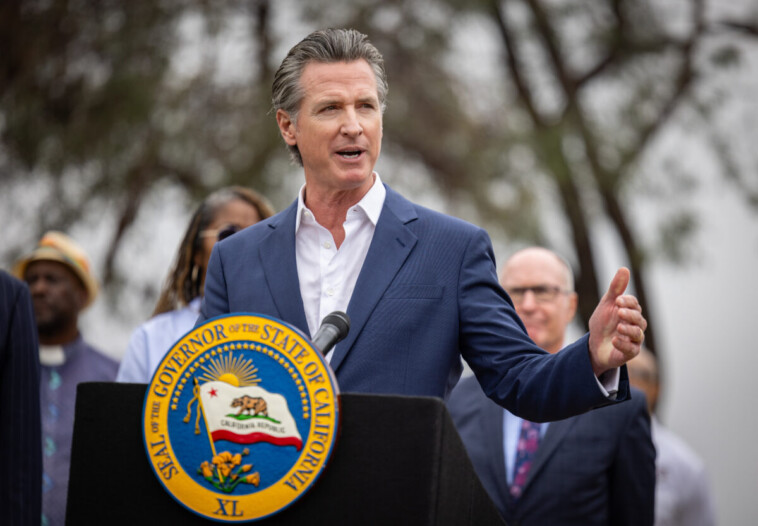California Democratic Gov. Gavin Newsom signed a formal apology on Thursday for the state’s “role” in slavery just one day after the governor vetoed two reparations bills.
Assembly Bill 3089, which Newsom signed, mandated that the state offer a formal apology along with memorializing the apology in a plaque on the state Capitol, the Los Angeles Times reported. Slavery was never legal in California after it became a state in 1850, but some argue that the state’s laws allowed slave owners to keep slaves even after the practice was outlawed in California’s 1849 Constitution.
“The State of California accepts responsibility for the role we played in promoting, facilitating, and permitting the institution of slavery, as well as its enduring legacy of persistent racial disparities,” Newsom said in a statement. “Building on decades of work, California is now taking another important step forward in recognizing the grave injustices of the past — and making amends for the harms caused.”
Democrat Assemblymember Reggie Jones-Sawyer added, “Healing can only begin with an apology. The State of California acknowledges its past actions and is taking this bold step to correct them, recognizing its role in hindering the pursuit of life, liberty, and happiness for Black individuals through racially motivated punitive laws.”
The apology, however, doesn’t take any steps toward reparations as Democrats in California take heat from reparations advocates for the lack of progress on the issue, the LA Times reported. California was the first state in the nation to appoint a reparations task force.
On Wednesday, Newsom vetoed two reparations bills, one of which would have allowed black Californians to reclaim or be compensated for property that was taken by the government through eminent domain decades ago, according to the Associated Press.
Am I Racist? Is In Theaters NOW — Get Your Tickets Here!
Newsom said that if he had signed the bill, it would not have gone into full effect because lawmakers previously blocked another piece of legislation to create an agency tasked with reviewing reparations claims.
“I thank the author for his commitment to redressing past racial injustices. However, this bill tasks a nonexistent state agency to carry out its various provisions and requirements, making it impossible to implement,” Newsom stated.
The second reparations bill vetoed by Newsom would have expanded California’s Medicaid program to include medically supported food and nutrition. The governor argued that the bill “would result in significant and ongoing general fund costs for the Medi-Cal program that are not included in the budget.”



